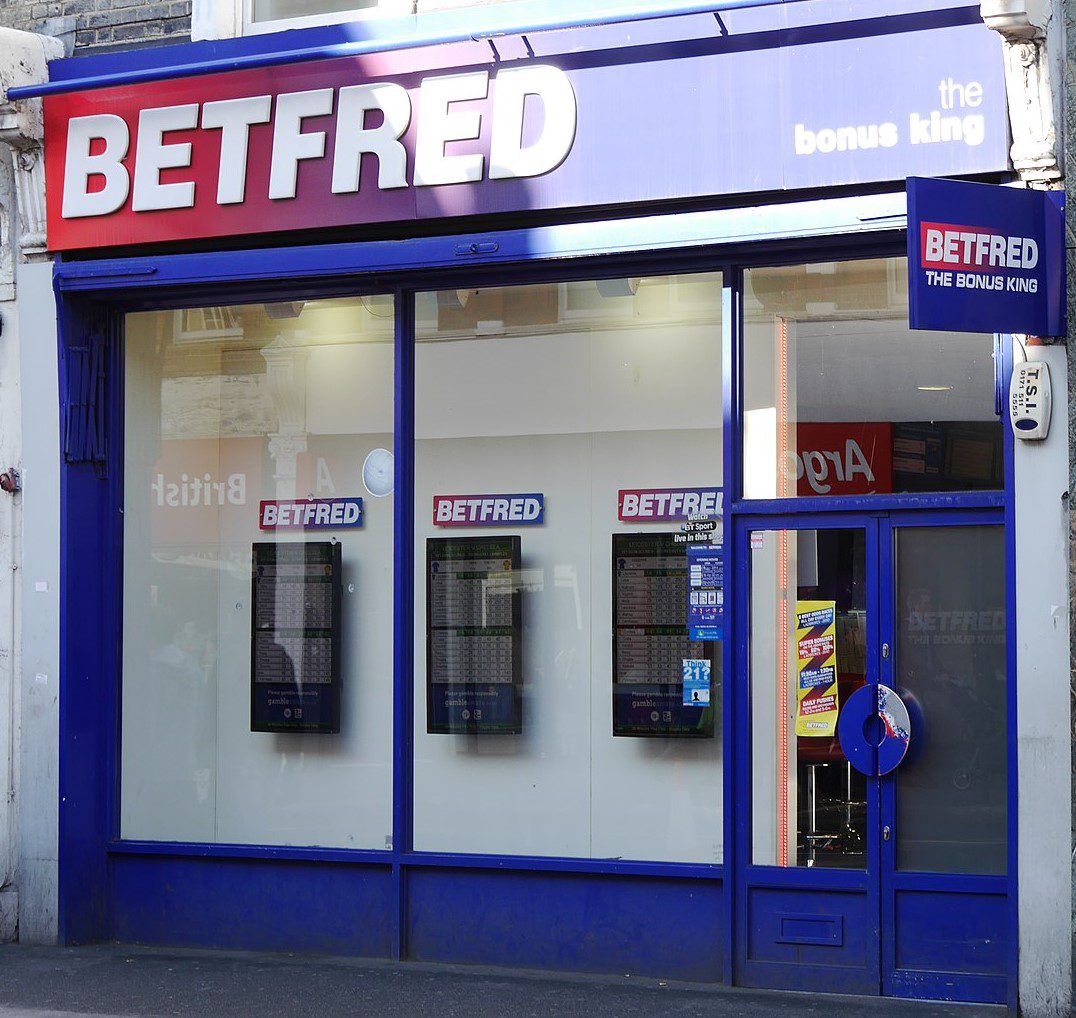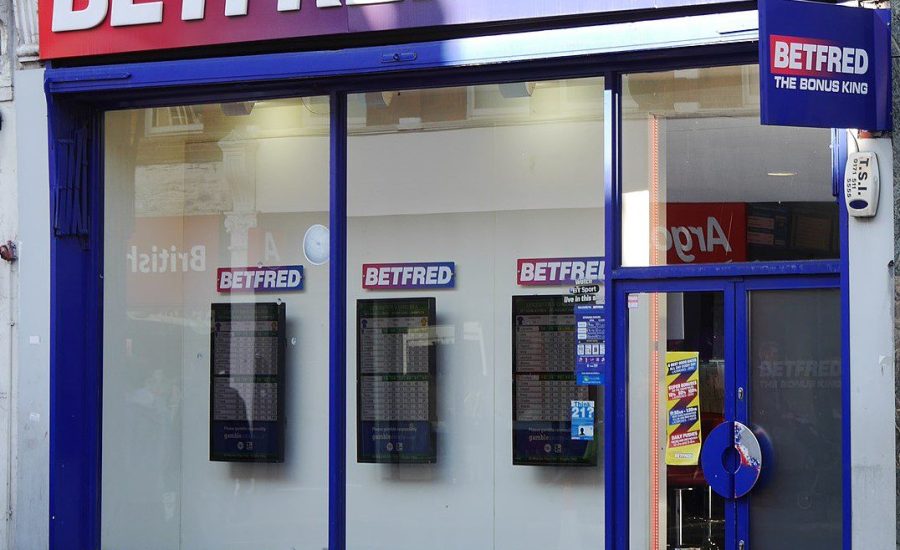Safer gambling week special: Online gambling has got much of the attention, but preventing harm in retail betting can be a difficult problem where technological solutions can be harder to implement. iGB looks at what safer gambling tools are available at betting shops.
To the average person in the UK, the most notable sign every year that it’s Safer Gambling Week would be from betting shops.
The industry’s initiatives during the week are wide-reaching, across both physical and online spaces.
But betting shops, despite a decline in numbers in recent years, are still on almost every high street in the country. And almost every one is plastered with signs encouraging people to think more about their gambling activity.
But inside those retail betting shops, what can be done to protect customers?
As pressure from the media and government around harmful gambling grows, the industry has attempted to show that it can deal with potential harm without needing strict interventions that could affect all customers.
Those solutions, though, usually involve technology. And technology like that tends to be much easier to implement online, where a customer’s full activity can be easily monitored.
The industry effectively acknowledged as much after losing the fight over stake limits at fixed-odds betting terminals. As campaigners attempted to implement similar limits for the online sector, those in the industry argued that the tools available online to monitor and prevent harm meant stake limits were not needed.
The implied concession would be that it is much more difficult to detect harm in retail betting without the imposition of strict limits.
What safer gambling tools are in place at betting shops?
That, of course, is not to say that tools to limit retail betting harm do not exist. An Entain representative noted that many of the tools that exist for retail betting are also available online.
“Tackling harm across both retail and online is similar in that many of the safer gambling tools available are the same,” they said. “For example, the setting of time and spend limits, reminders and self-exclusion options.
A Flutter spokesperson, when asked about tools to prevent harm at retail betting shops, also noted that its safer gambling strategy largely worked on a cross-channel basis.
“As part of the Positive Impact Plan launched in March, Flutter includes its Play Well pillar as a key focus area that underpins every element of the group’s strategy,” they said. “The pillar highlights universal principles Flutter can employ across its divisions.
Noting the measures in place at the operator’s Paddy Power shops, it cited measures that also exist online.
“Paddy Power betting shops do not accept credit cards,” the spokesperson continued. “They also operate a self-exclusion system, an industry-wide initiative, where customers can ask that staff no longer accept their bets.”
Still, the statistics suggest that the extent to which these tools can be used in retail betting is on a much lower scale to online. William Hill reported that in 2019 – the last full year in which Covid-19 lockdowns did not disrupt the retail sector – it made 200,771 safer gambling interactions online. In retail, meanwhile, it made 33,789, despite the sector accounting for 39% of revenue. While the exact numbers may change from operator to operator, it’s generally true that online is responsible for many more interactions.
And some of the solutions are harder to enforce consistently and effectively in the retail sector. Self-exclusion schemes, including the Multi-Operator Self-Exclusion Scheme (MOSES) exist to allow players to effectively ban themselves from all betting shops run by major operators.
But unlike with an online account, the checks to ensure a self-excluded player – or one that an operator has banned for their own safety – does not return to a store is not foolproof. In a number of media investigations, such as one from the BBC in 2019, customers self-excluded from retail betting operators, only to later be allowed to enter shops and place bets.
Adding to the difficulties is the nature of the retail customer.
“There is, to an extent, a transient aspect to many of our customers – people popping into one of our shops for a bet,” the Entain representative pointed out. “They’re not regular customers, and therefore our teams may find it more difficult to identify changes in behaviour.”
Personal touch
However, there are also certain advantages that the retail sector presents.That starts with the personal touch that comes with betting at your local shop.
“There is a personal aspect to the retail sector, in that our teams on the ground will know their regular customers well and be able to notice any concerning changes in behaviour,” the Entain representative said. “It’s easier for our teams to spot signs of harm and intervene, if necessary.”
Much of the work, though, must be done by in-shop staff, giving them more responsibility than a standard retail job. That can present a challenge, but operators have made a serious effort to ensure that all staff are adequately trained for the realities of what their role can entail.
“Our teams definitely have a role here and are trained to spot signs of problem gambling and support customers in store – we want to make sure that our customers are having a safe and enjoyable experience when they’re in our shops,” the Entain representative added.
Then there is the aspect that is showcased at its best during Safer Gambling Week: in a physical space, there are many more opportunities to put safer gambling messages in front of customers.
A 2020 report from GambleAware on the integration of safer gambling into regular business practices noted these opportunities. Various physical touchpoints within the customer journey serve as possible places to remind customers to think more about their activity.
“The Betfred retail team intended to use a range of in-store touchpoints, some of which are not normally used for safer gambling messages,” the report said. “These included advertising and marketing materials, such as the large advertising banners that typically draw people into shops and messaging on screens, as well as other customer-facing communications like betting slips and leaflets.
“The intention was that someone in-store would struggle to miss the messages but would not see them as standing out from everything else in a negative way.”
Retail goes digital
The ultimate question of whether there is sufficient technology in the retail sector to deal with harm might be dealt with by technology. The retail betting sector – like almost all retail industries – has been digitising in recent years, a move that has accelerated post-covid. Betting at terminals has become more common than ever, and use of cash less common. Last week, William Hill launched its first “digital-only” shop in Leeds, and said that player protection was “key to this transformation”.
Entain’s spokesperson noted that it takes many data-led steps to tackle harm in retail betting.
“We’re the only operator in the industry which mandates our teams to interact with customers when a gaming machine voluntary limit is exceeded, and also the only operator with transactional alerts based on customers’ stake and debit card usage that prompts our teams to interact and have a conversation,” they said.
“We also run algorithms on our machines that act as an early warning system to detect potentially harmful behaviour through our Player Awareness System, and intervene with safer gambling messages with those identified against our markers of protection.
“Our teams will step in and have a tailored interaction if our customers display any safer gambling triggers.”
Yet Entain’s boast of being the “only operator” to take these steps suggests that this is all still relatively new to the industry as a whole.
Data and digitisation will likely one day offer a complete solution to the risk of players slipping through the cracks in retail betting. But the industry may need that solution to come soon, or the answer may instead come from above, and be much less targeted.




